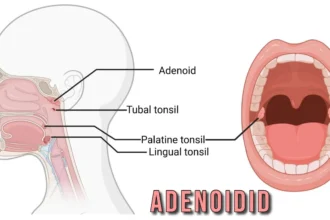You might expect a stuffy nose, headache, or maybe even facial pain when dealing with sinusitis. But dizziness? That one catches people off guard. If you’ve ever stood up during a sinus infection and felt the room spin, you’re not imagining things. The connection between sinus pressure and balance issues is real—and surprisingly common.
Sinusitis vertigo occurs when inflammation or pressure in the sinus cavities interferes with your vestibular system, the inner ear structure responsible for maintaining balance.
How Balance Works: A Simple Look at the Vestibular System
The Inner Ear – Your Body’s Balance Center
Your balance is controlled by the vestibular system, housed in your inner ear. It includes:
- The semicircular canals, which detect head rotation
- The otolith organs, which sense gravity and movement
- The vestibular nerve, which sends signals to the brain
These structures work together to help your body interpret motion and maintain stability. Disrupting any part of this delicate system—even indirectly through sinus pressure—can result in dizziness or vertigo.
The Sinus–Ear Connection: How Pressure Affects Balance
H3: Sinus Cavities Near the Ear
Several sinuses lie near the ears, especially the ethmoid and sphenoid sinuses, located behind the nose and eyes. When these areas are inflamed, they can create pressure or swelling that indirectly affects the nearby inner ear.
H3: Eustachian Tube Dysfunction
The Eustachian tubes connect the middle ear to the back of your throat. Their job is to equalize pressure. When sinusitis blocks these tubes, pressure builds in the ear, causing a sense of fullness, hearing changes, and even vertigo.
H3: Inflammation and Fluid Buildup
Inflamed sinuses can cause fluid buildup or block normal drainage in the ear. This disrupts balance signals and tricks your brain into thinking you’re moving when you’re not, leading to sinusitis and vertigo treatment.
Diagnosing Sinusitis Vertigo
Tools and Tests
Doctors may use:
- Physical exams and medical history
- Sinus CT scans to detect inflammation
- Nasal endoscopy to view the sinus drainage pathways
- Balance tests like the Dix-Hallpike maneuver or electronystagmography
An accurate diagnosis ensures that the treatment plan targets the correct cause.
Treating Sinusitis Vertigo: What Works?
Step 1 – Clear the Sinuses
- Nasal irrigation (e.g., saline rinse or neti pot): Flushes out mucus and allergens
- Steam inhalation: Opens the nasal passages
- Decongestants (oral or nasal): Reduce swelling and pressure
Use these consistently to reduce sinus pressure and help the Eustachian tubes function properly.
Step 2 – Treat the Infection
- Antibiotics: Only if a bacterial infection is confirmed
- Antivirals: Rarely used unless flu is involved
- Steroid nasal sprays: Reduce inflammation in chronic cases
Avoid self-prescribing antibiotics—a misdiagnosis can worsen resistance.
Step 3 – Manage the Dizziness
- Vestibular suppressants like meclizine or dimenhydrinate
- Anti-nausea meds for motion sickness symptoms
- Hydration and rest: Crucial for symptom management
If the dizziness persists, vestibular therapy might be recommended to retrain your balance system.
Chronic Sinusitis and Long-Term Balance Issues
When Sinusitis Becomes a Recurring Problem
Recurring sinus infections can lead to chronic Eustachian tube dysfunction and ongoing dizziness. In such cases, you may need:
- Endoscopic sinus surgery
- Balloon sinuplasty
- Allergy testing and treatment
The goal is to improve drainage, reduce inflammation, and restore normal pressure balance.
Home Remedies for Mild Sinusitis Vertigo
What You Can Do at Home
- Drink warm fluids like herbal tea
- Use warm compresses over the sinuses
- Sleep with your head elevated
- Try gentle head movements to retrain balance
Lifestyle Tips to Prevent Future Episodes
H3: Protect Your Sinuses and Balance
- Avoid allergens and pollution
- Use a humidifier in dry environments
- Practice good nasal hygiene
- Stay up to date on vaccinations (flu, COVID-19)
- Manage acid reflux, which can worsen sinus issues
Healthy sinuses lead to a more stable sense of balance.
Conclusion: Finding Steady Ground Again
Sinusitis vertigo may seem like an odd combination, but the link is well-grounded in anatomy. When your sinuses swell, they can throw your inner ear—and your whole sense of balance—off course. Thankfully, with a mix of medical care and lifestyle changes, most people regain their footing quickly.
Don’t ignore recurring symptoms. Get evaluated, treat the root cause, and take care of your sinuses. Your balance—and your peace of mind—depends on it.
FAQs
1. Can sinus infections cause vertigo?
Yes, sinus infections can lead to vertigo, especially when inflammation or pressure affects the inner ear or blocks the Eustachian tubes, which regulate ear pressure and balance.
2. How long does sinusitis vertigo last?
Mild cases may last a few days, while chronic or untreated infections can cause dizziness for weeks. Recovery depends on how well the underlying sinus problem is managed.
3. Can I treat sinusitis and vertigo at home?
You can ease mild symptoms with saline rinses, steam, hydration, and rest. However, persistent dizziness should be checked by a doctor to rule out more serious causes.
4. What kind of doctor should I see for sinusitis-related dizziness?
Start with a primary care physician or an ENT specialist (otolaryngologist). If balance issues continue, a neurologist or vestibular therapist may be involved in your care plan.

















